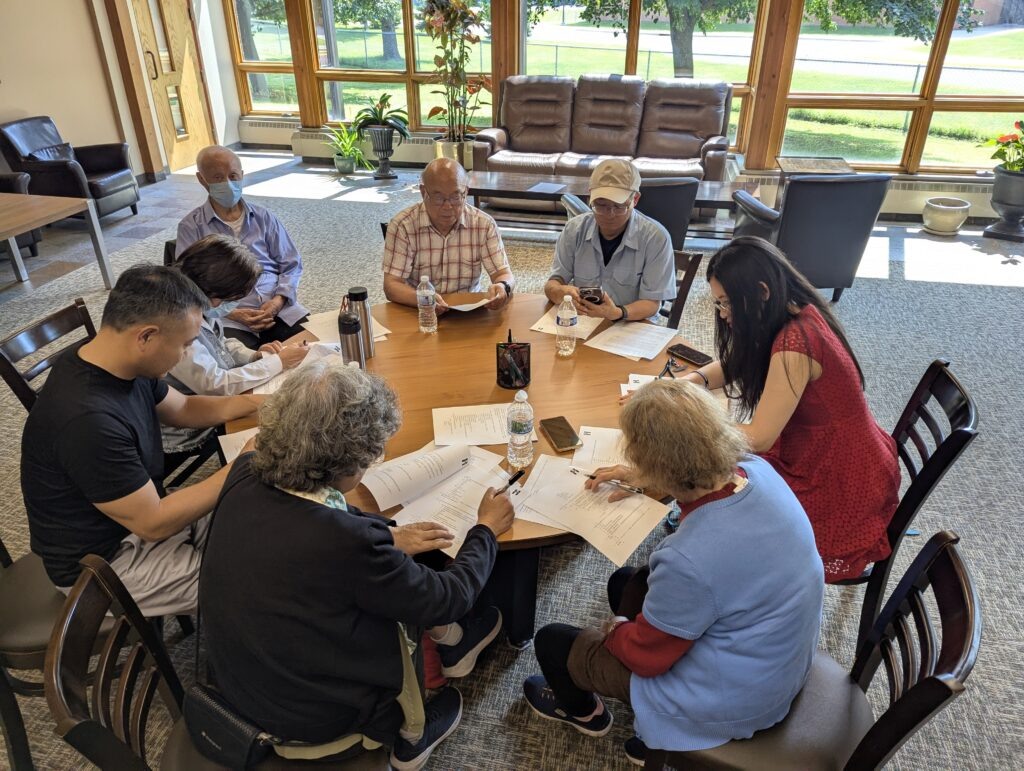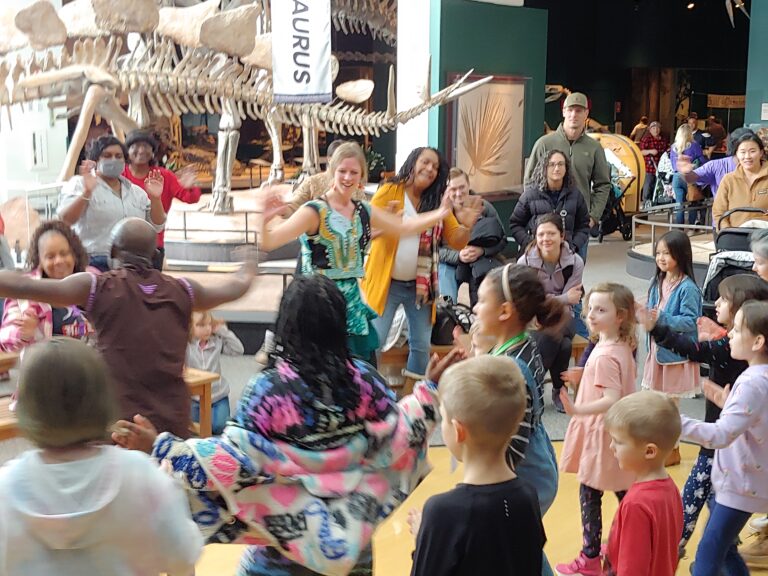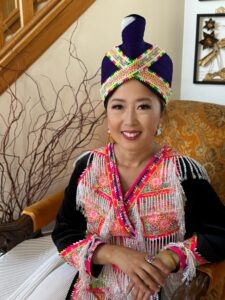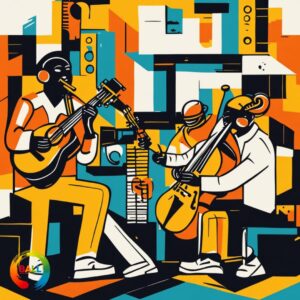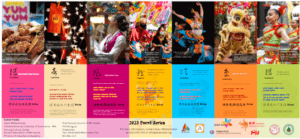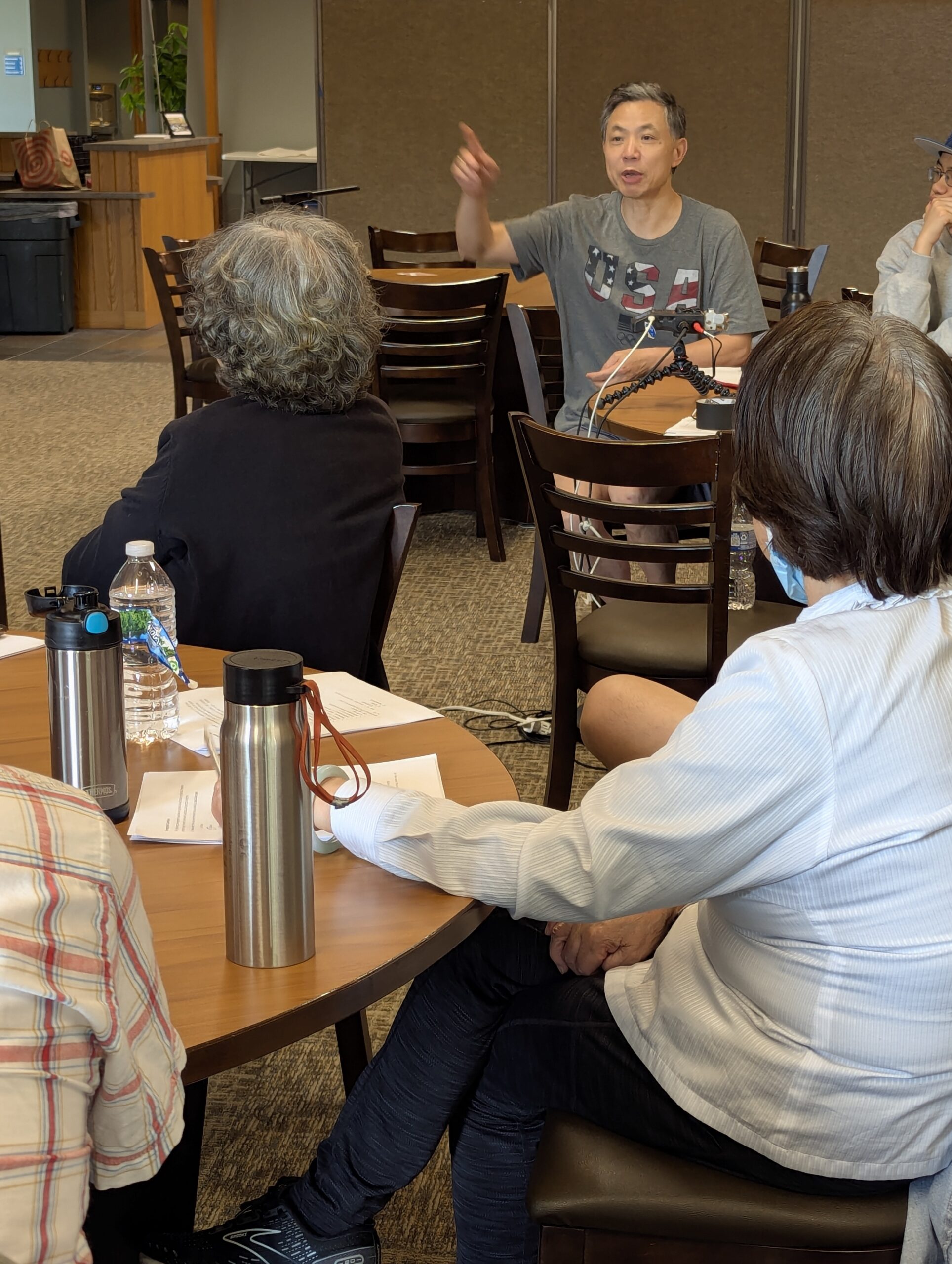 Asian Media Access recently conducted two important community listening sessions to understand how extreme heat affects our senior population. On August 15, we gathered with Chinese American seniors at the West Metro Chinese Church, followed by a September 10 meeting with Hmong American seniors. These conversations revealed critical gaps in heat safety awareness and highlighted the unique challenges facing our community’s most vulnerable members.
Asian Media Access recently conducted two important community listening sessions to understand how extreme heat affects our senior population. On August 15, we gathered with Chinese American seniors at the West Metro Chinese Church, followed by a September 10 meeting with Hmong American seniors. These conversations revealed critical gaps in heat safety awareness and highlighted the unique challenges facing our community’s most vulnerable members.
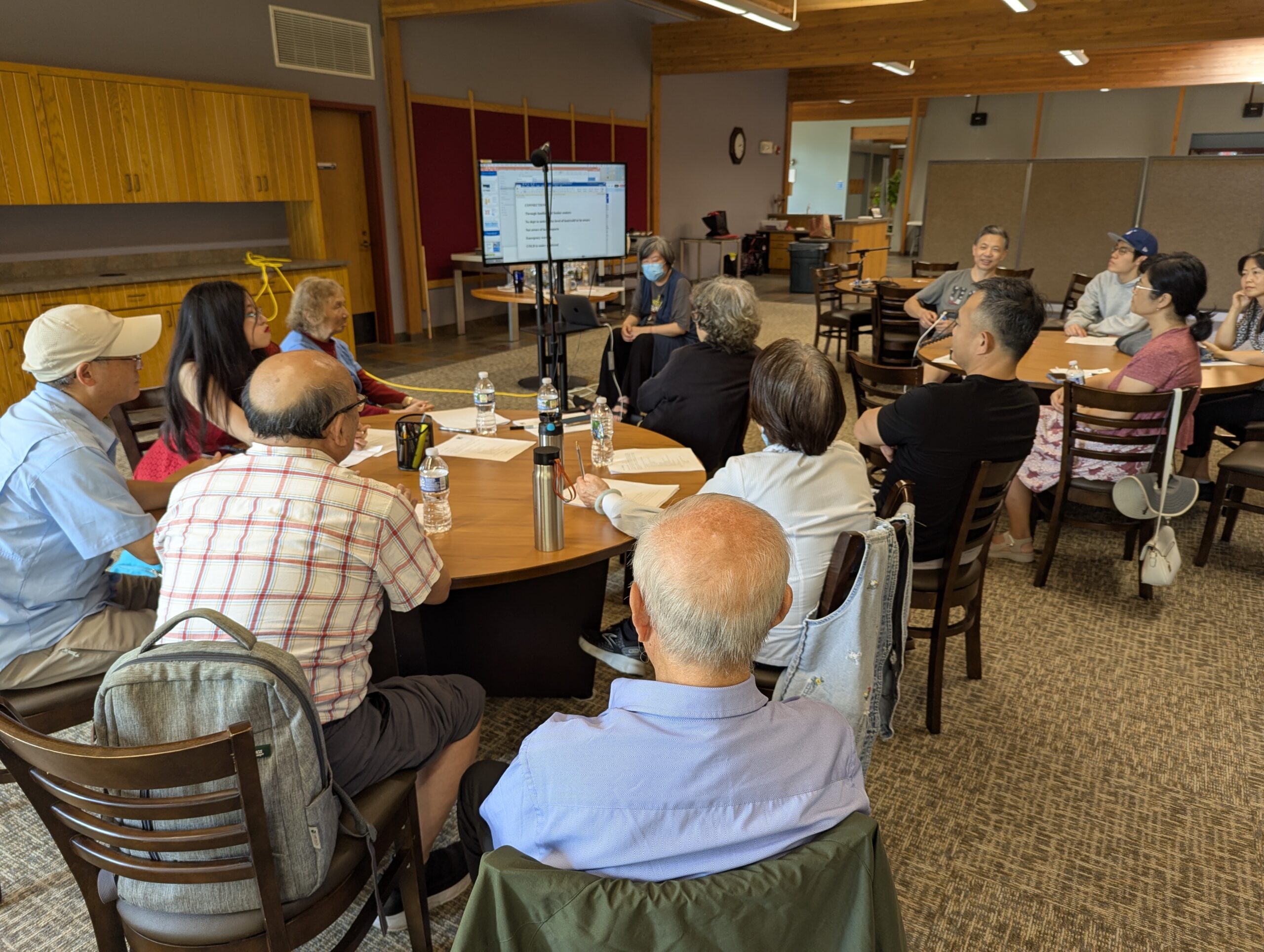
The discussions uncovered a concerning pattern: both groups of seniors had limited understanding of how extreme heat can seriously impact their health and neighborhoods. Many participants expressed surprise when learning about heat-related health risks, with several noting they had never considered high temperatures as dangerous as cold weather. Chinese American seniors mentioned their cultural background of heat tolerance, while Hmong seniors shared similar assumptions about their ability to withstand Minnesota’s summer temperatures without recognizing the health risks involved.
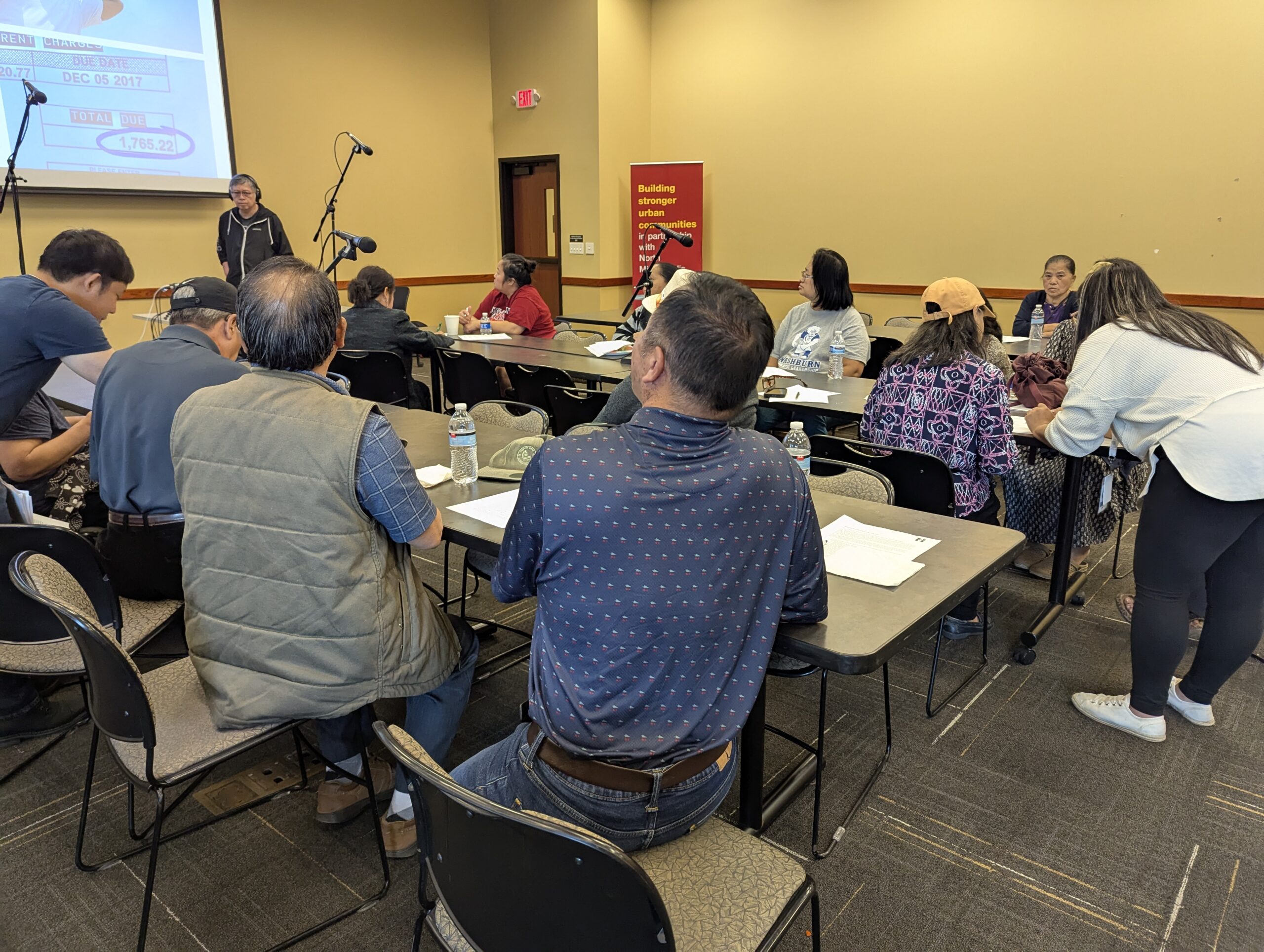 Housing emerged as a central concern across both communities. Seniors consistently reported living in apartments and housing complexes with severely outdated air conditioning systems that provide little relief during heat waves. One Hmong senior mentioned that they only have 1 air conditioning unit in the living room, so when it’s too hot, everyone sleeps at living room floor, but the outdated unit not really cool everyone down. Chinese American seniors share the same concerns that “basically don’t work, only loud nosies.” Many seniors face the double burden of inadequate equipment combined with financial constraints that prevent them from using air conditioning regularly due to high electricity costs, creating dangerous situations during extended heat periods.
Housing emerged as a central concern across both communities. Seniors consistently reported living in apartments and housing complexes with severely outdated air conditioning systems that provide little relief during heat waves. One Hmong senior mentioned that they only have 1 air conditioning unit in the living room, so when it’s too hot, everyone sleeps at living room floor, but the outdated unit not really cool everyone down. Chinese American seniors share the same concerns that “basically don’t work, only loud nosies.” Many seniors face the double burden of inadequate equipment combined with financial constraints that prevent them from using air conditioning regularly due to high electricity costs, creating dangerous situations during extended heat periods.
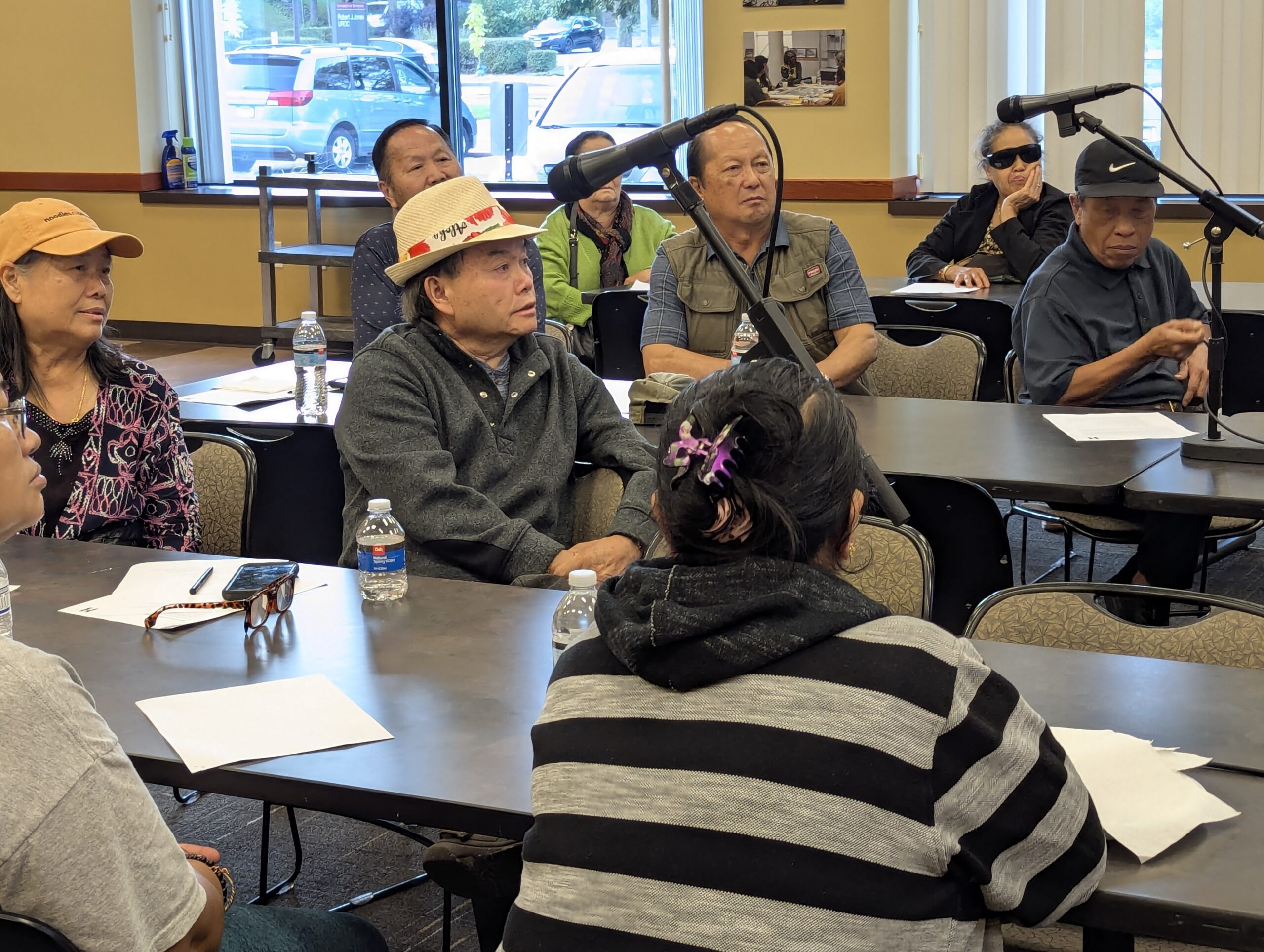 Language barriers significantly compound these challenges, particularly for emergency communications. Both communities emphasized that heat warnings and safety information are typically available only in English, leaving many seniors unaware of dangerous weather conditions. Chinese American participants suggested that county alerts should be distributed through WeChat and community networks, while Hmong seniors requested information be made available in their native language through trusted community channels. This communication gap means seniors may continue normal activities during heat advisories, unknowingly putting themselves at risk.
Language barriers significantly compound these challenges, particularly for emergency communications. Both communities emphasized that heat warnings and safety information are typically available only in English, leaving many seniors unaware of dangerous weather conditions. Chinese American participants suggested that county alerts should be distributed through WeChat and community networks, while Hmong seniors requested information be made available in their native language through trusted community channels. This communication gap means seniors may continue normal activities during heat advisories, unknowingly putting themselves at risk.
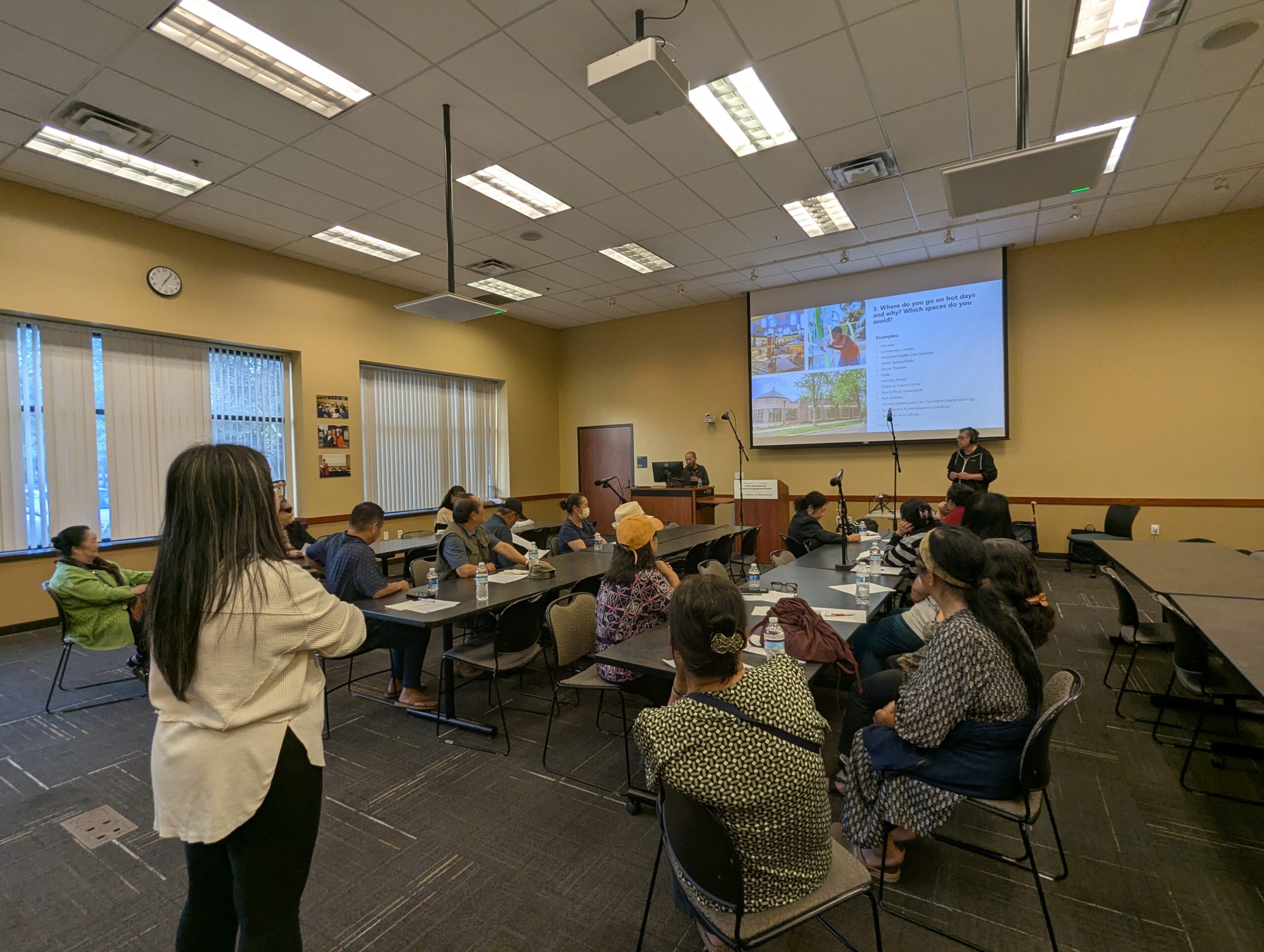 Cultural factors also influence how seniors respond to heat-related health risks. Many participants expressed reluctance to seek help or visit cooling centers due to cultural values emphasizing self-reliance and not wanting to burden others. Chinese American seniors noted that even when cooling centers are available, cultural hesitancy prevents many from utilizing these resources. Hmong seniors shared similar concerns about not knowing, nor willing to go to unfamiliar places, like county lib or community centers to access help due to unfamiliarity and lack of transportation.
Cultural factors also influence how seniors respond to heat-related health risks. Many participants expressed reluctance to seek help or visit cooling centers due to cultural values emphasizing self-reliance and not wanting to burden others. Chinese American seniors noted that even when cooling centers are available, cultural hesitancy prevents many from utilizing these resources. Hmong seniors shared similar concerns about not knowing, nor willing to go to unfamiliar places, like county lib or community centers to access help due to unfamiliarity and lack of transportation.
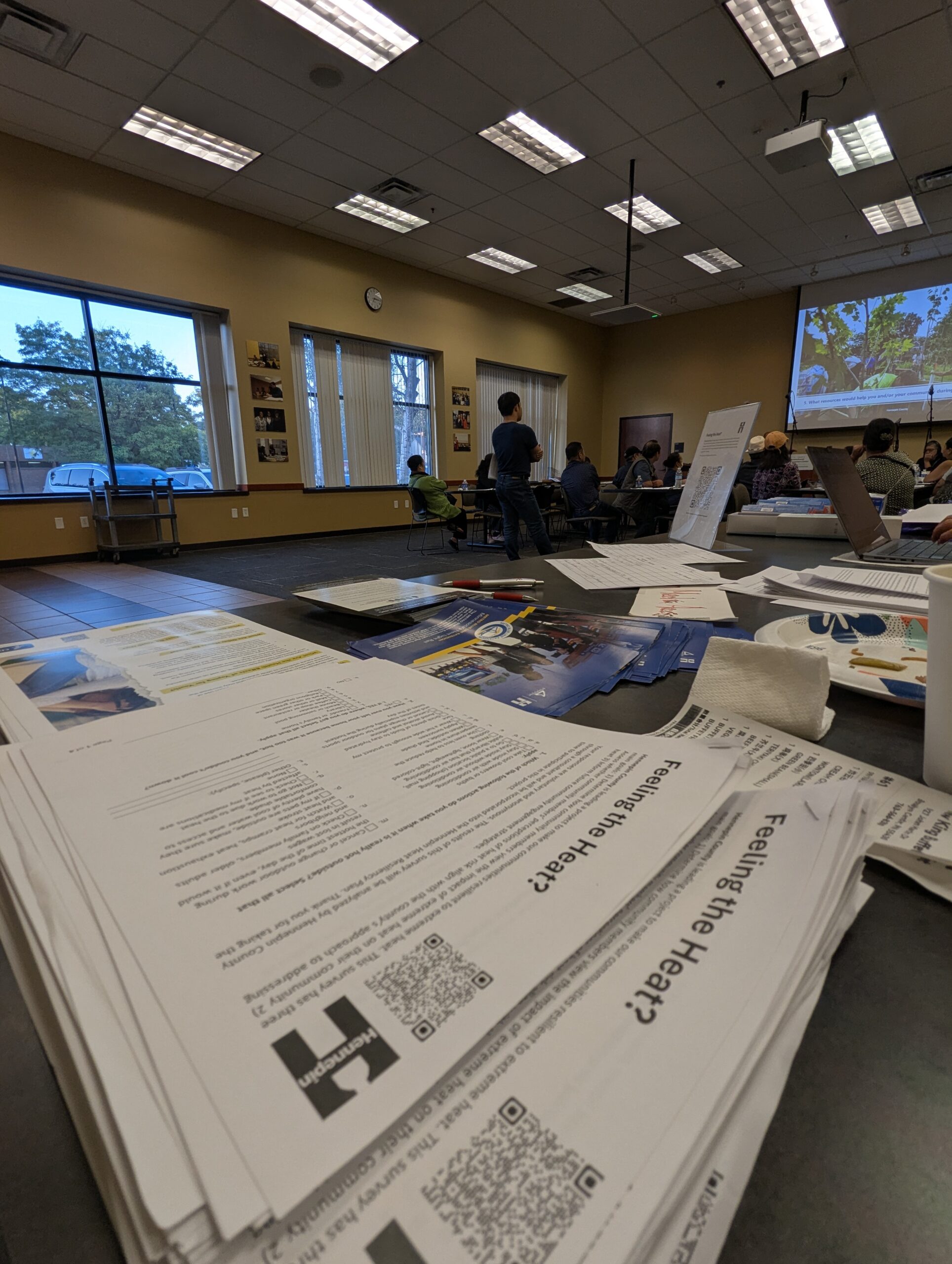 The financial impact of extreme heat disproportionately affects senior households on fixed incomes. Both communities called for cooling assistance programs similar to existing winter heating subsidies, noting that electricity costs during heat waves can strain already tight budgets. Seniors suggested that government support should include not only direct financial assistance for air conditioning repairs and replacements but also ongoing utility bill help during extreme heat periods to ensure seniors don’t have to choose between cooling and other necessities.
The financial impact of extreme heat disproportionately affects senior households on fixed incomes. Both communities called for cooling assistance programs similar to existing winter heating subsidies, noting that electricity costs during heat waves can strain already tight budgets. Seniors suggested that government support should include not only direct financial assistance for air conditioning repairs and replacements but also ongoing utility bill help during extreme heat periods to ensure seniors don’t have to choose between cooling and other necessities.
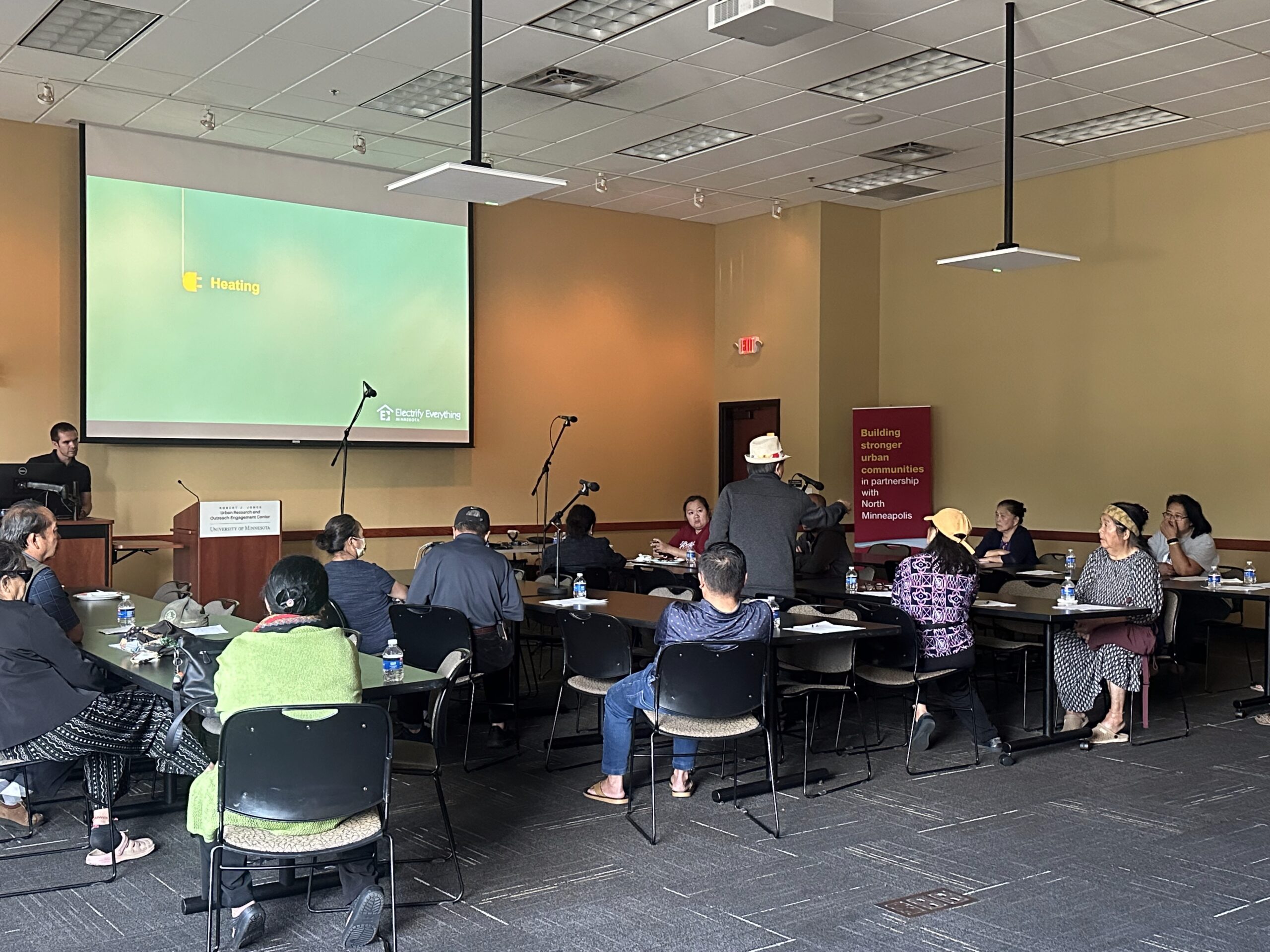 Looking forward, both communities provided clear recommendations for improving heat safety support. They emphasized the need for multilingual warning systems that utilize culturally appropriate communication channels, financial assistance programs that address both equipment and operating costs, and community-based check-in systems that respect cultural preferences while ensuring senior safety. These conversations demonstrate that effective heat safety programs must consider not only physical needs but also cultural, linguistic, and economic factors that shape how seniors experience and respond to extreme weather events.
Looking forward, both communities provided clear recommendations for improving heat safety support. They emphasized the need for multilingual warning systems that utilize culturally appropriate communication channels, financial assistance programs that address both equipment and operating costs, and community-based check-in systems that respect cultural preferences while ensuring senior safety. These conversations demonstrate that effective heat safety programs must consider not only physical needs but also cultural, linguistic, and economic factors that shape how seniors experience and respond to extreme weather events.
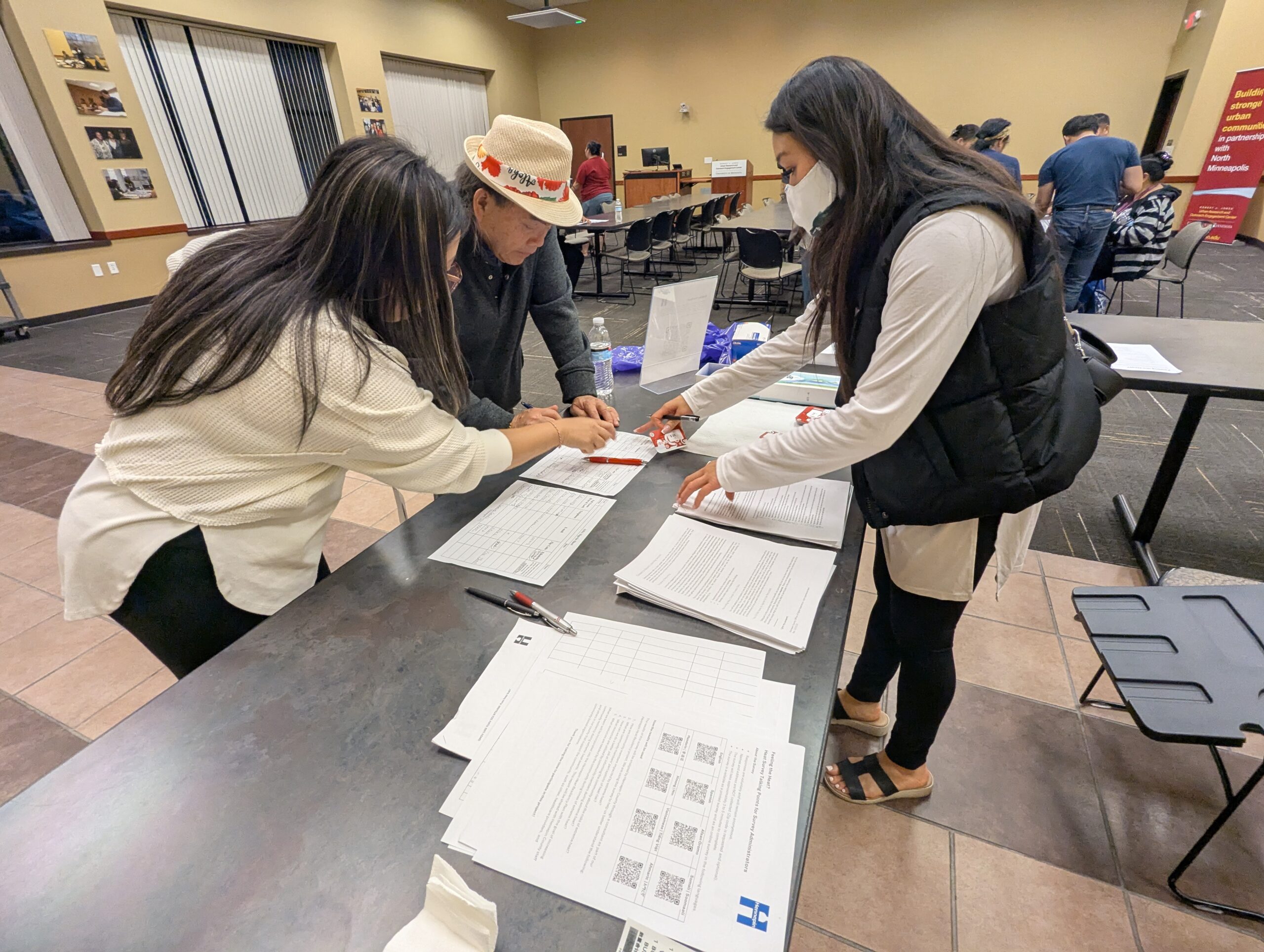 Our “Community Pulse Check” events reveal that as climate change makes heat waves more frequent and severe, our response systems must evolve to better serve diverse BIPOC populations. By centering community voices and experiences, Asian Media Access continues working with partners like Hennepin County to develop culturally responsive solutions that protect our community’s most vulnerable members while honoring their dignity and preferences.
Our “Community Pulse Check” events reveal that as climate change makes heat waves more frequent and severe, our response systems must evolve to better serve diverse BIPOC populations. By centering community voices and experiences, Asian Media Access continues working with partners like Hennepin County to develop culturally responsive solutions that protect our community’s most vulnerable members while honoring their dignity and preferences.
Please help us to fill out the online survey to respond to extreme heat incidences. FMI: amamedia@ammaedia.org

